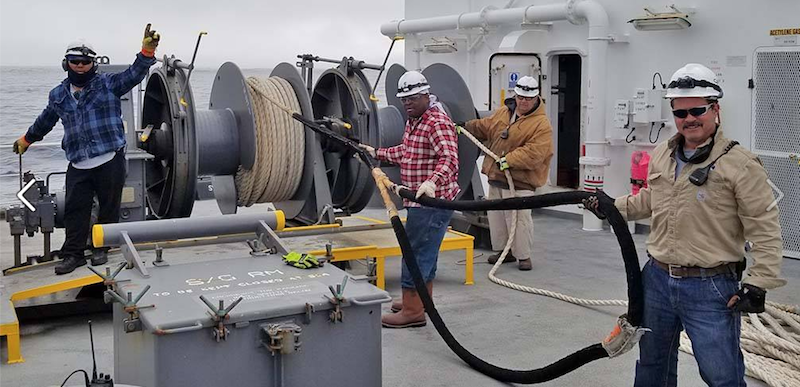The Fair Labor Standards Act (FLSA) governs wages and compensation for hours in the workplace.
There are four basic FLSA requirements:
- A minimum wage, currently $7.25 an hour;
- Premium pay for overtime work at a rate of 1.5, or an additional 0.5, times the regular rate of pay for over 40 hours worked in a single workweek, who are not otherwise exempt from premium pay;
- Certain recordkeeping, including accurate time records; and
- Limitations on the employment of minors under 18.
U.S. maritime vessel personnel have their own unique compensation and overtime exemption under FLSA if they meet the regulatory definition of a “seaman.” A seaman under FLSA must be paid at least the minimum wage for all hours worked in a work week and are exempt from the overtime premiums where:
- The employee performs as a master or subject to the authority, direction, and control of the master aboard a vessel;
- The employee’s service is rendered primarily as an aid in operation of such vessel as a means of transportation, provided the employee performs “no substantial amount of work of a different character.”
The focus is not on a job title or the actual place where the work is performed. A seaman’s exempt status under the FLSA is evaluated based upon the character of the work an employee actually performs. The Department of Labor has determined that “no substantial” means that employees who perform non-seaman duties more than 20% of the time are not seaman for the purposes of FLSA and are entitled to overtime pay. Stated differently, a seaman who is exempt must spend at least 80% of his or her time performing work that is closely related to the operation of the vessel as a means of transportation.
Typical seaman can include masters, mates, deckhands, engineers, oilers, cooks, radio operators, firemen, surgeons, and stewards if they meet the above criteria. For example, it is considered an insubstantial amount of different work where a seaman loads or unloads cargo and equipment at the beginning or end of a voyage.
Employees not typically considered seaman are concessionaires and their employees; employees on floating equipment who construct docks, levees, revetments or structures; employees engaged in dredging; employees engaged in digging or processing sand, gravel, or other materials; stevedores and longshoremen; and roustabouts. For example, a repairman who only performs work between navigation voyages or seasons does not qualify for the seaman exemption. However, a repairman has been found to be a seaman when he also worked during the navigation period.
The critical key to determine seaman status is the actual work regularly performed by the employee. It is a factually intense process independent of a job title or work location.
FLSA is perhaps the most technical and detailed of our nation’s employment laws. The maritime industry has its own unique requirements under FLSA which are technical and detailed. To state it otherwise – the devil is in the details.




